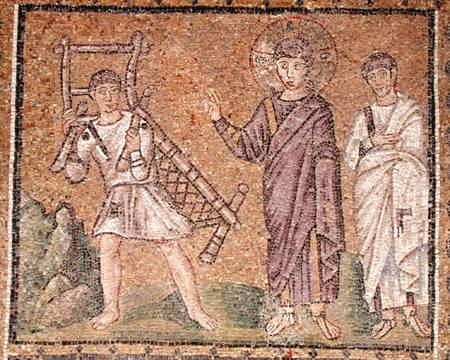Matthew 9:1-8
I harbor a sneaky form of pride that I often don’t recognize as such because it manifests as self-criticism. I fall short of my expectations of myself, fall prey to a debilitating shame, and judge myself harshly. And while it’s not wrong to work toward improving how I act, the ego-based notion that I should be something different than I am is presumptuous. It flies in the face of God’s love for me. It assumes that my short-sighted idea of what is the perfect “me” is correct.
When I become aware of this, the self-critical in me can harshly judge the tendency to judge harshly, causing a downward spiral of negativity and shame. So long as I believe that the remedy is up to me, I am doomed. What helps is to embrace my shame with love and to bring everything to the presence of Christ, where I can let go of it.
In today’s reading from the Gospel of Matthew, Jesus tells a paralyzed man to take heart. “Your sins are forgiven,” he says. Then, to prove he has this authority, he tells him to take up his bed and go home.
One of the ways we can meditate on this passage is to remember that our refusal to forgive ourselves does paralyze us. The more we embroil ourselves in self-recrimination, the less we are able to create and to love. From God’s point of view this is usually senseless Our shortcomings are forgiven, period. There is no need, in a negatively prideful way, to hold ourselves to a standard that God, God’s self does not endorse. Instead, taking up our beds, we can return to our true home, that inner place where Christ is always present.
There we can bypass our brains to rest in a more profound wisdom. Guided by that deep inner sense of truth that is Christ within, our paralysis will slowly disappear. With a humble love for ourselves we are then more able to love one another.

